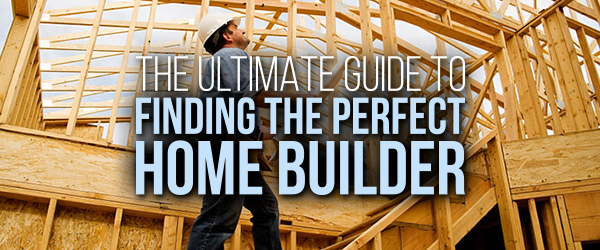Whether you’re building a custom home, an elaborate dream house, or an addition to your current residence, you’ve likely researched a multitude of local construction companies. Finding the best-fit contractor is vital to your ultimate home satisfaction. If you don’t work with someone who is experienced, professional, and communicative, your home building experience might be frustrating and disappointing.
Thus, prospective homeowners must allocate time to shop, research, and compare several different builders before committing to one. Regardless of your home design, expectations, or knowledge about construction — building a home that meets your needs starts with selecting the right contractor for the job.
Gather Information
After planning, budgeting, and designing the initial outline for your home, make a list of prospective builders that have experience with projects similar to yours. Because some companies excel, or focus primarily, on a particular style or type of home, they may not be the best choice if your house fits a different mold.
If you need help finding builders, your community yellow pages should provide a generic list of local contractors, while online resources and customer reviews can better your opinion on each. For a more interpersonal approach, try contacting your local home builders association. This organization will provide you with a contact list of construction agencies; you can directly call or request information about their experience, turnaround time, and price range, and ultimately narrow down your list.
Once you’ve shortened your list to three or four potential builders, it’s time to conduct more in-depth research. Visit and review each company’s finished projects or nearby homes. Use online sites such as the Better Business Bureau for detailed customer assessments. The information you utilize in the initial research process will ensure your builder confidence along the way.
Interview Your Potential Builder
Before signing a contract, address any questions or concerns you may have, and never hesitate to ask for more information. It is vital before “breaking ground” to have a clarified, mutual understanding of the building timeline and expectations, as well as your involvement. It is also wise to identify with your contractor what documentation and criteria you’ll encounter throughout the building process and when you can expect it. As a final, less subjective interview question, consider asking what sets the particular builder apart from other competitors.
The Q&A interview process is crucial to deciding if a prospective builder is right for you. If you need more information, you can also ask some of the questions outlined in the e-book “What You Need to Know Before Building a New Home.”
Do Your Homework
While comparing reviews and directly engaging with potential contractors will help you narrow down your list of best-fit homebuilders, you should also analyze their actual work. Visit in-progress houses and finished subdivisions to evaluate builder performance further.
Consider reaching out to former clients; based on their experience, they can tell you the benefits, challenges, and communicative approach, of particular contractors. If you are aware of any minor issues they noticed post-construction or red flags to avoid, you can confront problems beforehand and save yourself time and stress.
Open houses are an excellent way to examine a builder’s work thoroughly. With an opportunity to walk through a finished home, you can open the cabinets, evaluate the paint detailing and trimmings, and focus on the minor, but vital details to ensure builder performance will meet your standards.
Ready to Build?
You’re almost ready to hire a builder and start the process! There are a few things to remember, though. Your builder needs to have a strong reputation for excellence, the experience needed to build the house you want, a dedication to communicating clearly, and the flexibility to deal with the unexpected. Unexpected delays and challenges are inevitable, but communication and commitment can turn a construction challenge into an opportunity.
Your builder should understand what you need want, and expect during the construction process. A timeline and budget plan should be established at the forefront of your project and unless there are spontaneous changes, withheld to the end. Modern building techniques and updated building equipment are essential to ensure accuracy, efficiency and safety on the job site. You should also make sure that any builder you use is a Metropolitan Builders Association (MBA) member as they agree to a code of ethics and have access to more education and professional forms.
Conclusion
By following this checklist, it’s easier for prospective homeowners to match with the appropriate builder, and invest in a contractor that will follow through on what they promise. The research and hiring process will naturally highlight and eliminate builders based on experience, reviews, and individual values, and ultimately put your project sketches in the hands of someone who can make it a reality.









